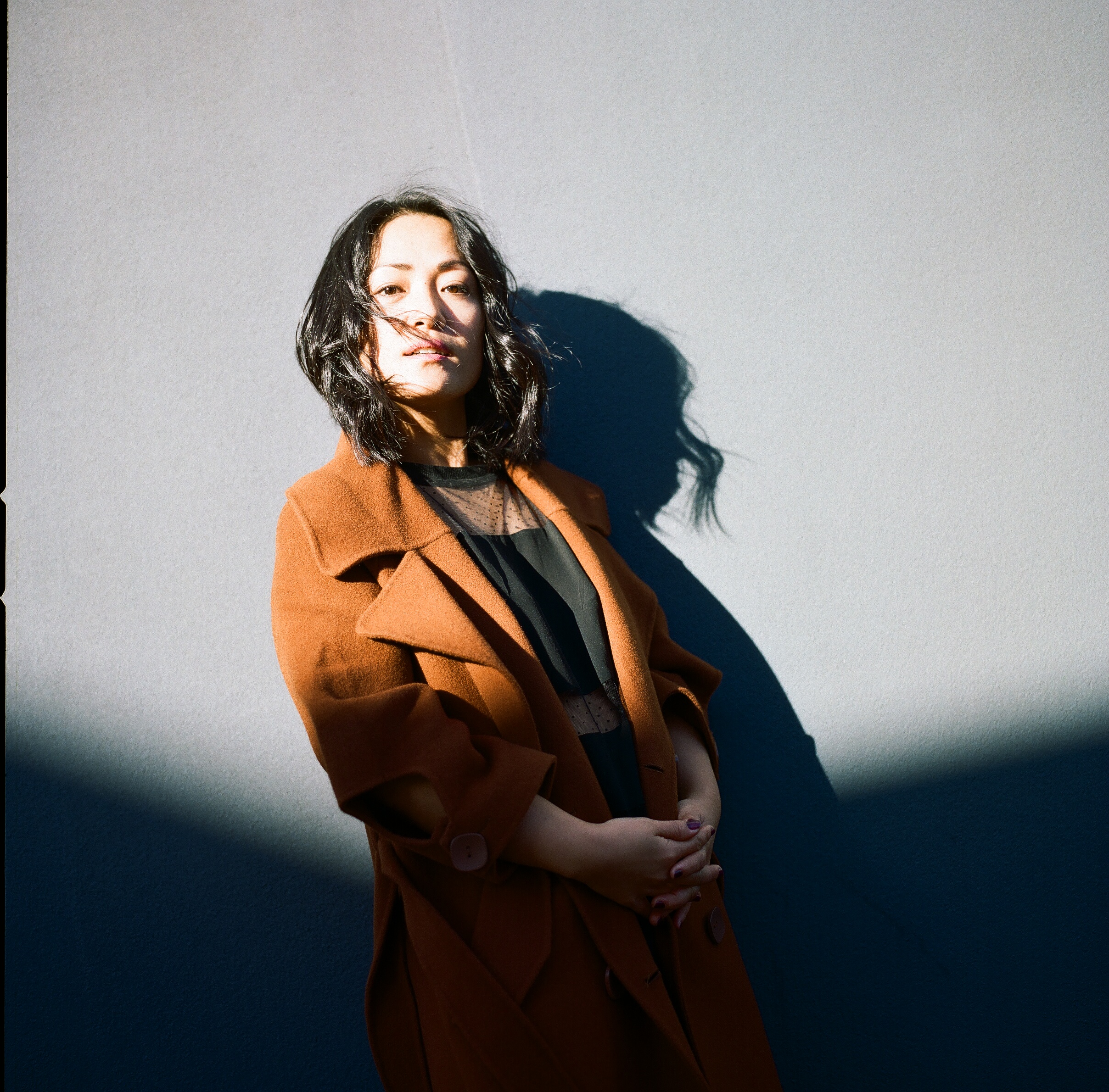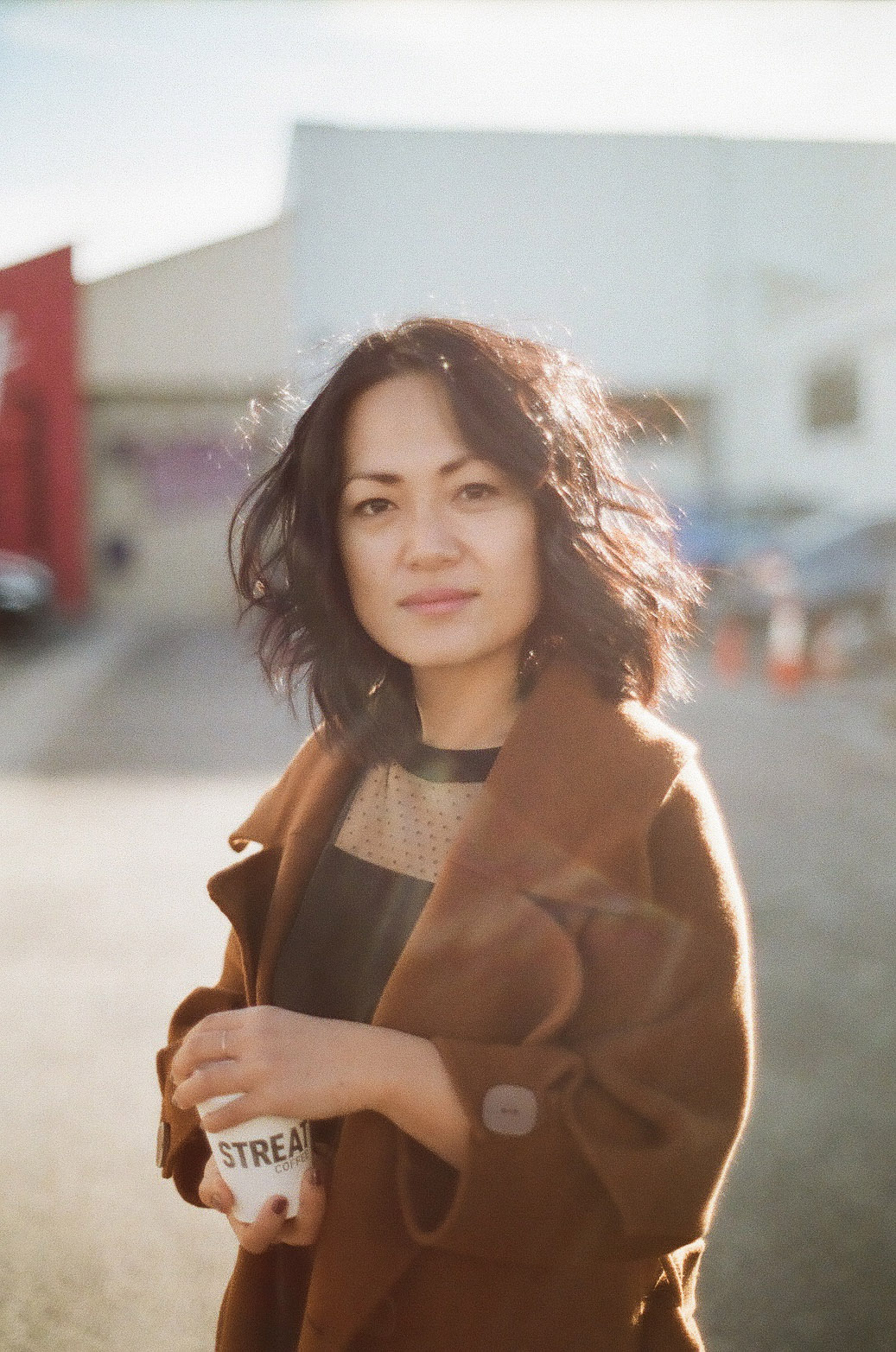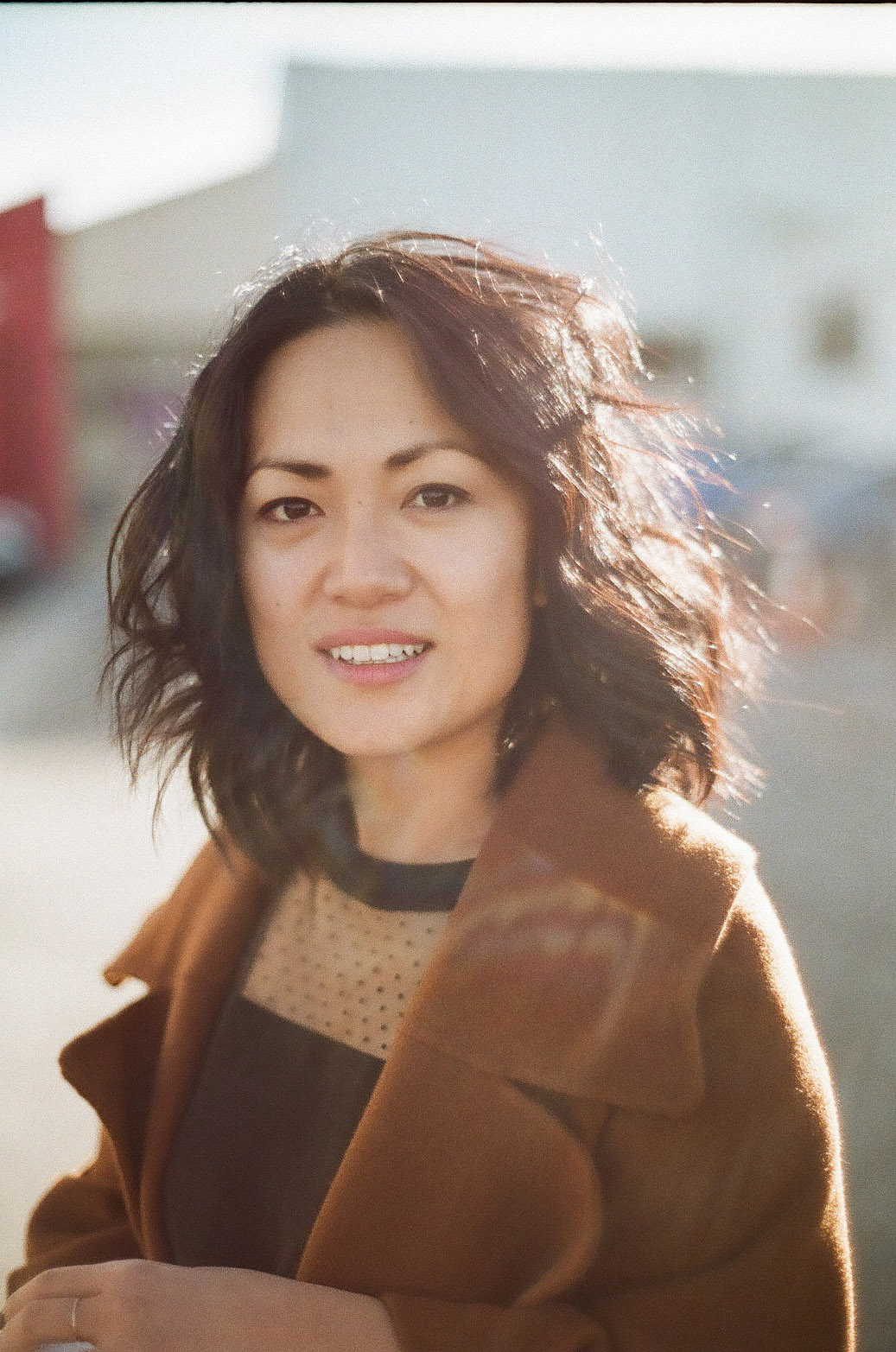Interview #105 — Ra Chapman
by Liana Skrzypczak
Ra Chapman is a writer, director and actor. She was adopted from Korea by Australian parents at age 4. Her play, K-Box,was awarded a Wheeler Centre Hot Desk Fellowship.
She is a recipient of the inaugural CAAP Director's Initiative at Melbourne Theatre Company and is currently the FCAC Living Now Resident at Malthouse Theatre. She is known for her award-winning performance as Therese in David Williamson’s feature film Face-to-Face and for her role as prisoner Kim Chang in the Foxtel series Wentworth.
Ra Chapman speaks to Liana about the systemic inefficiencies of representation within Australian arts, her current work, aspirations for future projects and how reuniting with her birth father in Korea shaped her identity.
Congratulations on your incredible body of work over the past few years. Which projects do you look back on with the most pride?
To be honest, I don’t feel that proud of my body of work to date. There have only been a few small projects, a few select moments in my career, where I have felt like I was contributing something valuable to a production and where I was allowed to have agency as a storyteller. I now see that for the majority of my career, I have compromised and willingly submitted to existing mentalities and structures within the industry in order to get work and keep one foot in the door.
What I am most proud of is how I have started drawing a line in the sand about the roles I am willing to consider and the people I am willing to work with. I don’t want to give the impression that I’m a saint turning down amazing roles and massive paychecks because a project clashes with my ethics and morals—that is a privileged position. I am talking about starting with small things, like turning down auditions for roles that represent women of colour in a dated, offensive or stereotypical way. I used to believe that landing any acting job was a huge achievement, but now I believe the cost is too great—both personally and for the positioning of people of colour and women on our screens and stages.
More and more you seem to be moving away from acting, towards writing and directing. What has been the catalyst for that move?
I never considered directing as a realistic career path until I was selected to participate in the CAAP/STC [Contemporary Asian Australian Performance/Sydney Theatre Company] Director’s week-long workshop in June 2016. I now realise how narrow and counter-intuitive my choices were up to that point. I was too concerned with building a career and landing minor roles. I didn’t think about how it would impact my mental health and personal integrity, not to mention being complicit in the perpetuation of archaic stereotypes. Now I value my personal and artistic integrity over a small part in a show that is not representative of the way I, and people in my community, see the world. That said, I have a long way to go. I still slip back into old habits and make allowances for projects and people that I’m not sold on. But it is a long process to fully release yourself from that people-pleasing “yes I’ll do anything you ask me and I’ll be grateful for what I can get” mindset many performers have instilled in themselves.
It is a long process to fully release yourself from that people-pleasing “yes I’ll do anything you ask me and I’ll be grateful for what I can get” mindset many performers have instilled in themselves.
What does the Australian arts industry do well?
I believe we are starting to realise the demand from audiences to tell the full spectrum of Australian stories and hear these stories from different perspectives instead of regurgitating the same ones we’ve always told. There are more initiatives and programs aiming to nurture, cultivate and champion diverse storytellers. This is awesome, but it is just the beginning.
What would you like to see change?
I’m sick of looking to international TV shows and podcasts to see and hear myself. One of the reasons I love Netflix is that I can find TV shows where I can see myself, and people I can relate to, being represented on screen in a way that doesn’t make me cringe. Strong leading ladies of colour, people of colour as protagonists, diverse stories being told with complexity and nuance. Some of the shows are great, some not so great—but they are there, they exist. Not just one or two shows that have the impossible task of shouldering the weight of representing all POC experiences.
Michelle Lee, in a recent Junkee article, had this to say about her experience of watching the American film Crazy Rich Asians: “...I cried because I felt my world and my future open up to me. As a westernised person from the East Asian diaspora, I finally, profoundly understood that I could have dreams and flaws and relationships and families that are real and not just punch lines... It’s one thing to imagine that for yourself through white characters; it’s another thing to be seen.” I want to see Australian TV shows, films and theatre that reflect my experience and Michelle articulated this feeling beautifully.
Who do you think should be held accountable for the problems surrounding representation in the material coming out of the Australian arts industry?
The problems are systemic. There is resistance in the Australian arts scene from powerful stakeholders who see ‘diverse’ to mean people on the fringes—of those who are ‘other’ and not commercially viable. In many instances, women are still categorised as ‘diverse’. So, really, ‘diverse’ could be classified as people who are the majority. In this day and age, the percentage of people who are white, able-bodied, cisgendered straight men are in the minority, no?
The real change needs to come from the attitudes and behaviours of professionals in the industry: from writers, producers and directors, to casting agents, costumes designers, hair and makeup artists. The list goes on. But changing attitudes and deep-seated bigotry in people is a massive undertaking; it does not happen overnight and may never happen for some people. That’s why it’s so important to nurture the next generation of creators and for us to start making our own work.
I’m sick of looking to international TV shows and podcasts to see and hear myself.
How do these issues inform the legacy you hope to leave with your work as a director?
Dissatisfaction with representation was the catalyst to create my own work, but what continues to inspire me daily are my fellow creatives and the experience of my community, local and global. I feel that as a writer and director, I will be able to contribute to changing the lens of Australian storytelling. The legacy I am working towards is one that sees Australia becoming a step closer to being a leader on a local and global scale when it comes to representing our diverse society and stories.
You have exciting projects on the horizon—among them, a play called K-Box as part of the 2018 Playwright Hot Desk Fellowship. Can you tell us more about this project?
I started writing this play two years ago, stealing bits of time to write here and there, not quite knowing what it was. All I knew was I needed to write something and this story K-Box is what started to flow out of me.
It’s a surreal comedy telling the story of a young woman, Lucy Thomas, who flees her collapsing life in Melbourne to stay with her baby boomer parents, Shirley and George, in country town Victoria. In her old room, Lucy discovers an empty cardboard box—one she thought was full of childhood memories. It’s now completely empty. What happened to her stuff? Who threw it out? What was in there anyway?
This play draws from the common experiences of people who’ve always known they were adopted, but who find themselves coming of age a second time when they start to ask questions about their buried past, their adopted ‘whiteness’, and what they might’ve lost along the way. K-Box explores how inclusion can exclude parts of us, and what happens when you dare address the elephant in the room with the people you love.
Is this play autobiographical in any sense?
The story is not autobiographical, but does take from aspects of my own experience as well as the experiences of many adoptees I have connected with over the last seven years. In particular, the four incredible women who shared their stories with us for the Women of Melbourne: Adoptee Voices videos that fellow Korean adoptee Jaz Blum and I filmed two years ago. These women’s journeys of how they attempt to navigate and maintain their relationship with their adoptive families while trying to reconnect with a lost culture, and in many cases their birth family, informed what the central questions of the work would be and the dynamics at play within the family depicted in the story.
Dissatisfaction with representation was the catalyst to create my own work, but what continues to inspire me daily are my fellow creatives and the experience of my community, local and global.
What’s the biggest misconception you’ve encountered about the adoption experience?
Firstly, I would like to be very clear that I have no intention to speak on behalf of all adoptees. Our experiences and journeys are so vastly different. I will only be speaking from my own experience and those I have been witness to along the way.
When people hear the word ‘adoption’, the first thing that comes to mind are cute little babies in need of rescuing from poverty and needing someone to love and care for them. And yes, I’m the first to agree brown babies are totally cute, and in some cases, they do come from underprivileged circumstances. Some don’t have biological parents to look after them. That is a fact. But what’s also a fact is that for a lot of inter-country adoptions, this is not the case at all. The majority of my friends who, like me, were adopted from Korea and have reunited with their birth parents, discovered their birth parents are actually still married. They have full blood siblings who, in many cases, didn’t know they existed. The story they were told about their adoption turned out to be a lie and in so many ways unimaginable—their worlds have been turned upside down.
Many people are misinformed and really don’t care to know or investigate how inter-country adoption actually impacts the adoptee. Poor little adoptee babies are adorable and unthreatening. They are an easy sell. Adult adoptees with opinions and stories to share about their complex experience and identity are not welcomed with the same open arms.
The amount of money that goes into facilitating adoption of children, from the government and associated organisations, compared to the resources allocated to post-adoption services, i.e. birth family search etc., is dismal. It’s a disgrace. There should be accountability; a responsibility to ensure a percentage of the money for pre-adoption services goes towards post-adoption services and education. It doesn’t seem like a huge ask, considering these same institutions have made the decision about the country where these adoptees are to grow up, the language they will speak and the culture they will embody.
Can you tell me more about your experience meeting your birth father in his home country, Korea?
I reunited with my birth father seven years ago and I have been to Korea six times. It has been nearly three years since I have been back to Korea to see him. I plan to go back again next year.
These visits are emotionally and physically draining. I don’t speak much Korean and he speaks even less English. He carries with him so much shame and sadness about my adoption. From the bits and pieces I can put together from letters and interpreters, he came home one day to find my birth grandmother had taken me to the adoption agency—I assume in order to give me a “better life” as he was suffering from depression and had been unemployed for a while. He says he didn’t get to say goodbye. I was nearly four years old.
I have two younger half-brothers who don’t know that I exist. I had three, but apparently the eldest brother died of heart problems two years ago. Sometimes I’m overcome with sadness knowing that we will never have the chance to know each other. I hope that one day soon, my birth father will gather the courage to tell my remaining half-brothers about me and I will get to have some sort of contact with them.
When people hear the word ‘adoption’, the first thing that comes to mind are cute little babies in need of rescuing from poverty and needing someone to love and care for them
Do you have any advice for emerging writers and actors?
As an actor, I used to drop everything and rearrange my week to fit a last-minute audition, just in case that was it. What if it was the audition which would lead to a call back, which would lead to a director and producer meeting, which would lead to me landing the role, which would lead to me landing a bigger role, which would lead to me landing a leading lady role, which would lead to…? All these what-ifs at the start of your career seem super exciting and full of promise, but if you’re not careful, can leave you jaded, insecure and full of anxiety. I was totally on my way down this path, and am currently a little jaded, but I don’t think that is a bad thing. Blind faith can be dangerous, especially when it comes to an industry like ours. If it doesn’t seem right, question it. If it doesn’t feel right, do something differently. Don’t allow other people to dictate your worth or silence your voice.
Work out why you want to be an artist and then reassess those reasons every year to see if they’re still the same. Then, take a look at what you are actively doing to get what you want.
Don’t make the same mistake I made. Don’t be passive for ten years and wait for other people to give you opportunities. Create your own work. If you’re not a writer, team up with someone who is. Reach out to people you admire in the industry. Find your people and collaborate.
Lastly, get a life. Don’t sacrifice the relationships and interests you have outside of this industry. Ever since other things and people in my life have become more important than my artistic pursuits, I feel I have more clarity and purpose and have started to find my true voice as an artist.
How do you practice self-care?
Long walks alone in parks; dancing with friends to loud music in dark living rooms; CC and Drys; and of course lots of cuddles.
What does being Asian-Australian mean to you?
I used to find this term a bit off-putting and didn’t relate to it at all. But now I throw it around whenever I can! Some people don’t want to be identified by this term, and I get why, but for me it is empowering. My relationship to my Asian-ness has always been conflicted and for a long time I tried to distance myself completely from it. Even the word Asian made me feel physically uncomfortable. Now I own it, and see it as a celebration of my constantly evolving identity.
Don’t make the same mistake I made. Don’t be passive for ten years and wait for other people to give you opportunities. Create your own work.
Find out more
Interview by Liana Skrzypczak
Photographs by Leah Jing McIntosh







